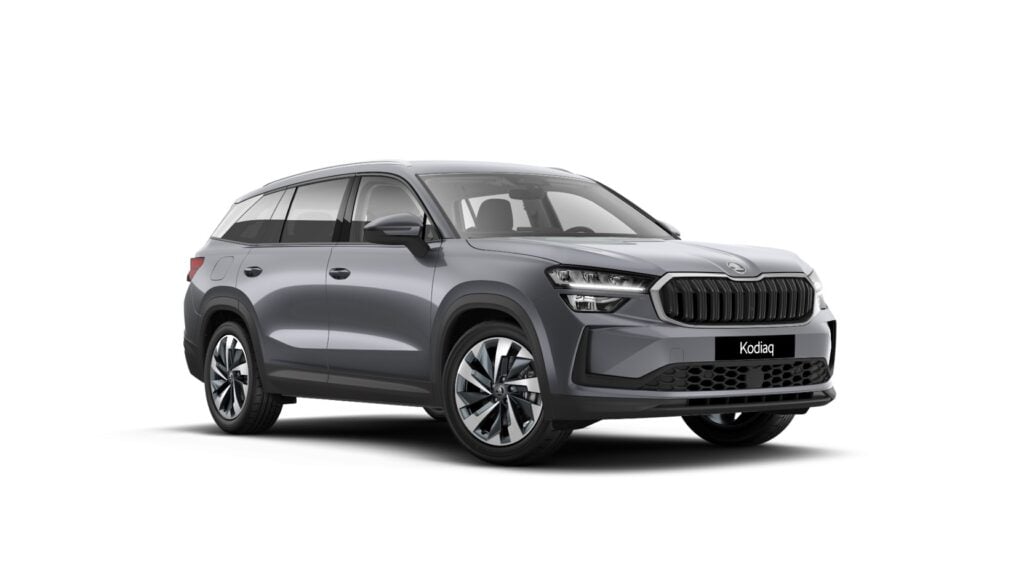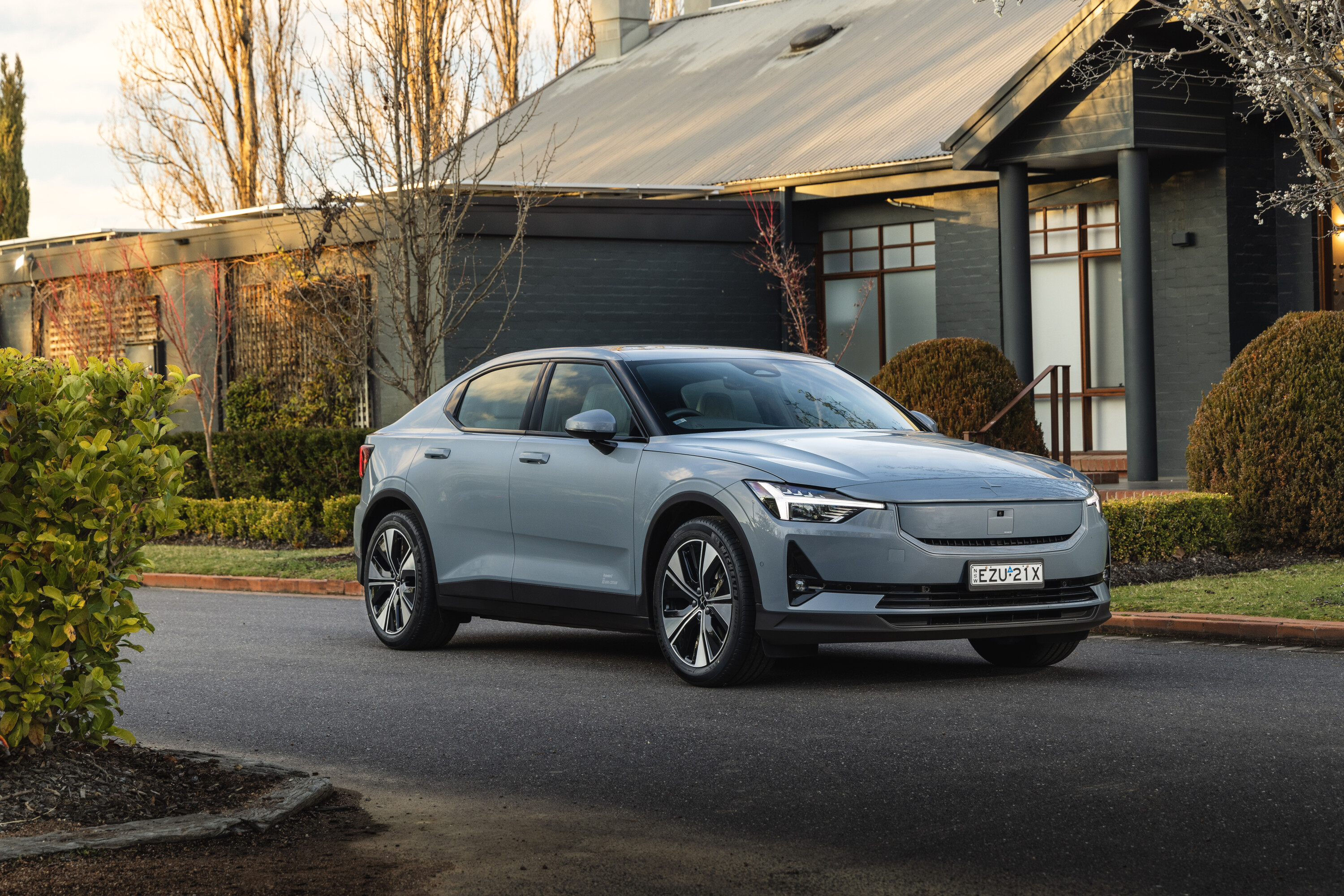
Polestar has followed fellow electric vehicle brand Tesla in leaving Australia’s new-car lobby group.
Samantha Johnson, the head of Polestar Australia, told the Federal Chamber of Automotive Industries (FCAI) that its position on Australia’s proposed New Vehicle Efficiency Standard is not aligned.
“Polestar is committed to working with the Australian Government in support of the long-term health, environmental, and cost benefits offered by a robust New Vehicle Efficiency Standard (NVES),” said Johnson in a resignation letter sent to FCAI chief Tony Weber.
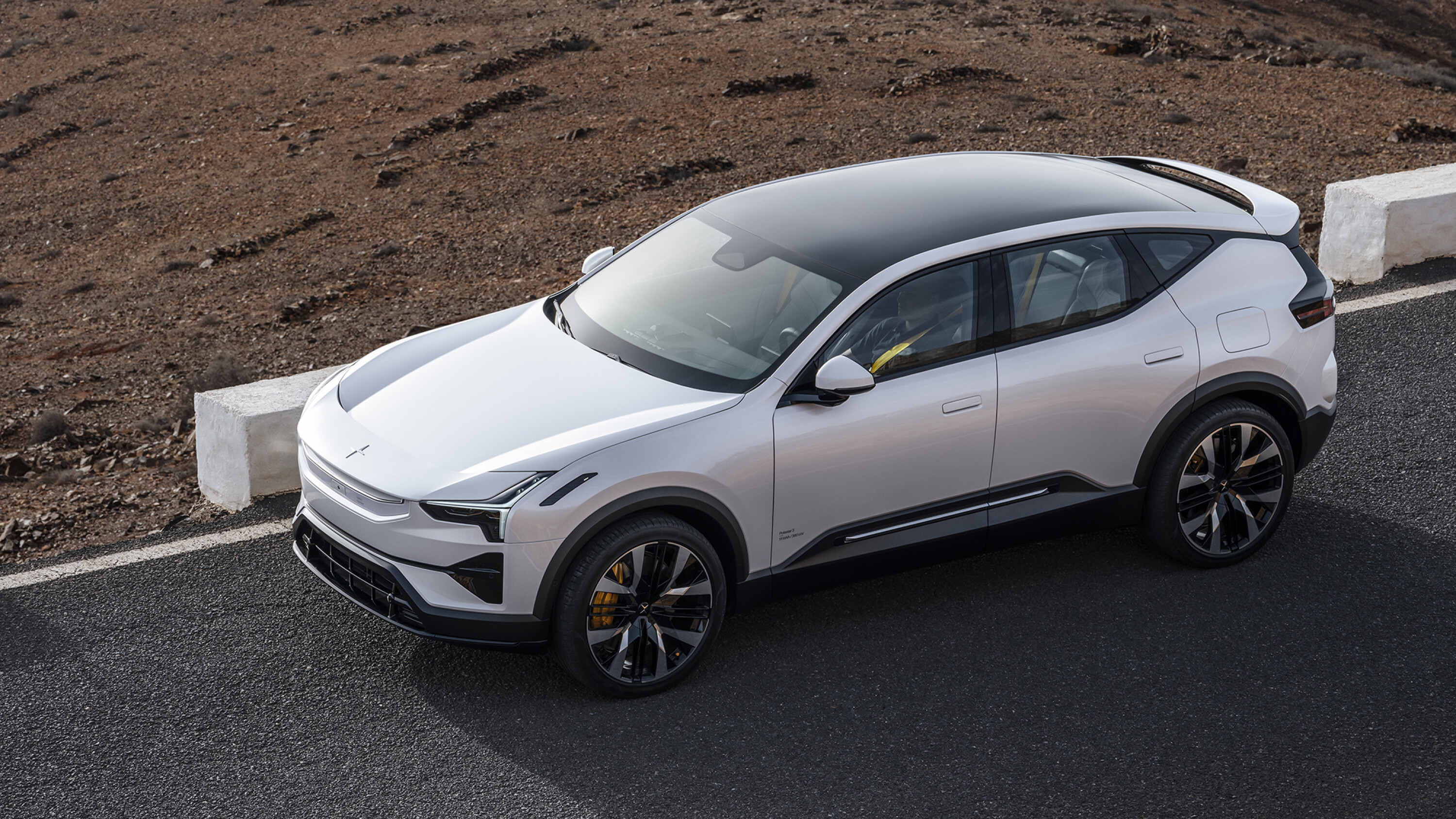
Australia is one of the last developed countries to introduce a vehicle efficiency standard. If passed through parliament, the proposed policy would come into effect from January 1, 2025.
The new standard – which will apply only to new cars – provides emissions targets that car makers must meet across their vehicle fleets. Over time this CO2 target will be lowered, forcing companies to provide more efficient cars.
“The FCAI’s commentary against the proposed ‘Option B’ framework of a NVES does not represent the position of Polestar and may have irrevocably damaged consumer perception and trust in the proposed policy,” said Johnson.
“The brand cannot in good faith continue to allow its membership fees to fund a campaign designed to deliberately slow the car industry’s contribution to Australia’s emissions reduction potential.”
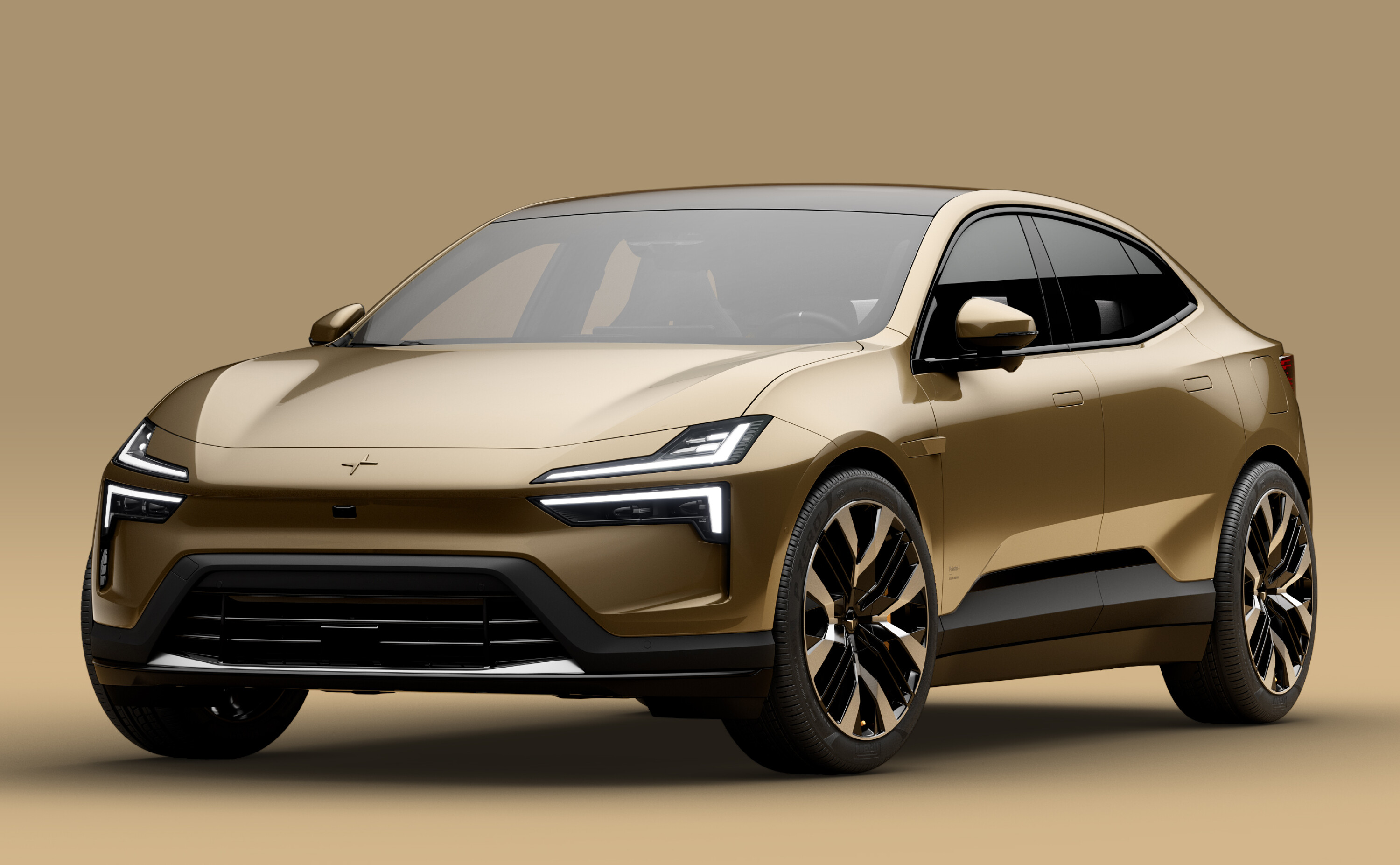
In its submission to the Federal Government, the FCAI said it opposes the proposed ‘Option B’ as it would “cause significant disruption for large sections of the industry, and will result in less choice and higher retail prices for Australian consumers”.
It also said the proposed standard would have a “disastrous impact” on some manufacturers who could discontinue certain vehicles, leave the Australian market, or increase vehicle costs.
“Delaying the implementation of a NVES, or changing the emissions reduction impact, only makes other sectors of the economy wear an additional emissions reduction burden. Further, it will most likely ensure that Australia continues to be a dumping ground for old automotive technology,” added Johnson.
In February, the FCAI released modelling claiming the prices of Australia’s most popular new cars – such as the Ford Ranger, Toyota HiLux, Isuzu D-Max and Toyota LandCruiser – could increase between $6000 and $25,000.
It also said carbon credits would reduce the cost of the popular Tesla Model Y by around $15,000 in Australia – a claim Tesla Australia has vehemently denied.
Tesla Australia referred the FCAI to the Australian Competition and Consumer Commission, saying “…the FCAI should be careful not to facilitate coordination among competitor companies about how they change prices or supply in response to regulations”.
Polestar Australia also addressed the issue in its resignation letter, stating that the FCAI has “over-blown” the claimed price rises and “cherry-picked what it thinks will progress the position of only some members”.
The brand cited modelling from The Grattan Institute that suggests vehicle prices may increase by an average of one per cent under the proposed fuel-efficiency standard.
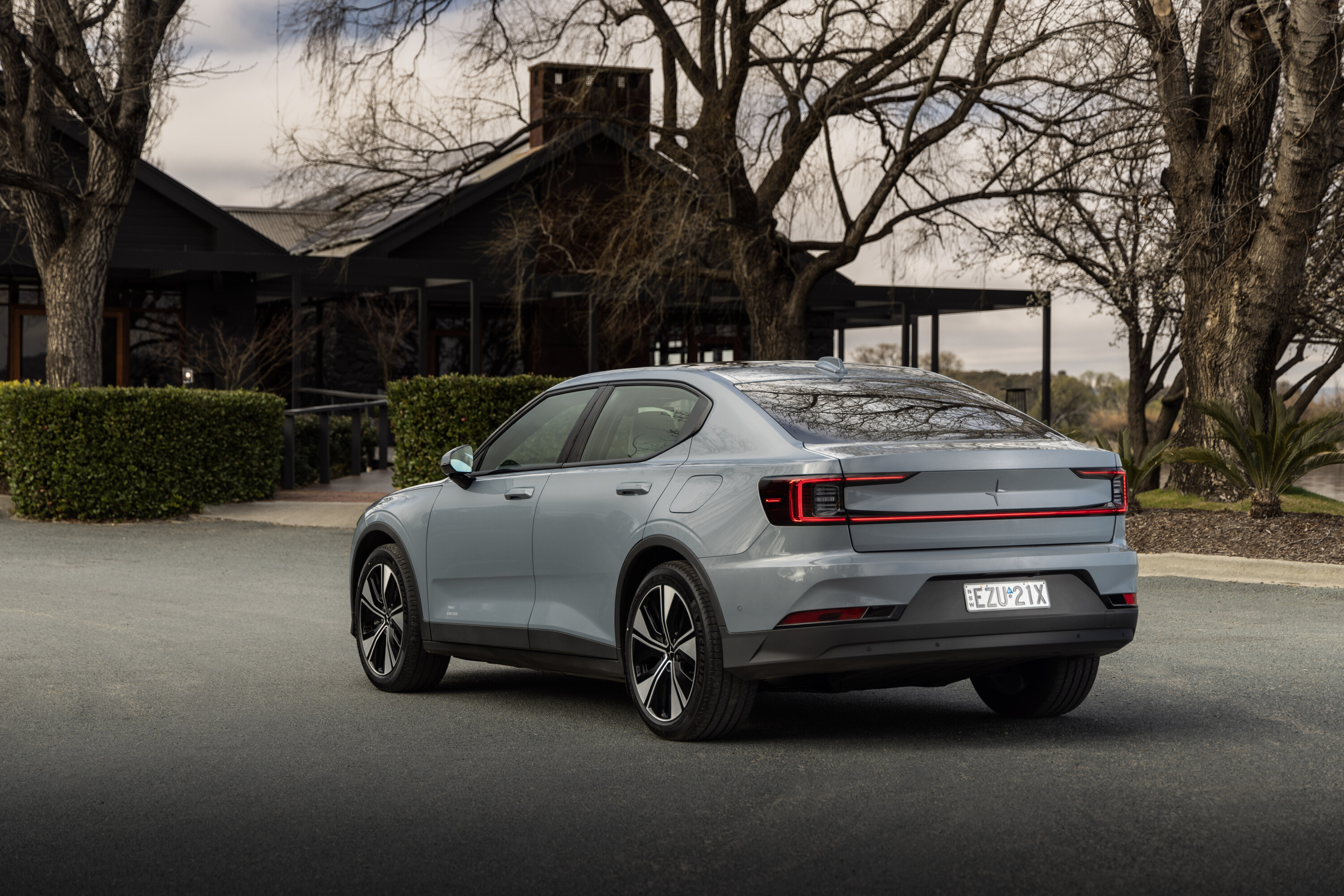
The departure of Tesla and Polestar means both brands will not be represented in VFACTS new-car sales data collated by the FCAI.
In 2023, Tesla and Polestar vehicles represented more than half (48,579) of the 87,217 electric cars reported as sold in Australia.
WhichCar understands Polestar Australia will provide its own sales figures as it looks into alternative reporting streams.
It is unclear if any others plan to follow Tesla and Polestar in leaving the Federal Chamber of Automotive Industries, though one brand said it would remain a member despite the concerns.
Volkswagen Group Australia – which includes the Volkswagen, Audi, Skoda, and Cupra brands – was reportedly assessing the situation late last week following the Tesla and Polestar exit.
However, a spokesperson told WhichCar today that Volkswagen Group Australia has not discussed leaving the FCAI – but its position on the fuel-efficiency standard “was written internally and submitted without reference to external organisations [like the FCAI] or other brands”.
“Volkswagen Group Australia (VW, Audi, Skoda and Cupra) speaks for itself on public matters. That holds true for this one,” the spokesperson said. “Essentially, VGA is in favour of the Government’s Option B though with the inclusion of ‘super-credits’ from Option A.”
The Government’s preferred ‘Option B’ emission-limit scenario intends to catch up to the United States by 2028, with an average annual CO2 reduction of 12.2 per cent for passenger cars and 12.4 per cent for light-commercial vehicles between 2025 and 2029.
The ‘Option A’ scenario is less ambitious – and includes ‘super-credits’ for the sale of low-emission electric and hybrid vehicles – while ‘Option C’ is “fast and aggressive” with stricter emissions reduction.
We recommend
-
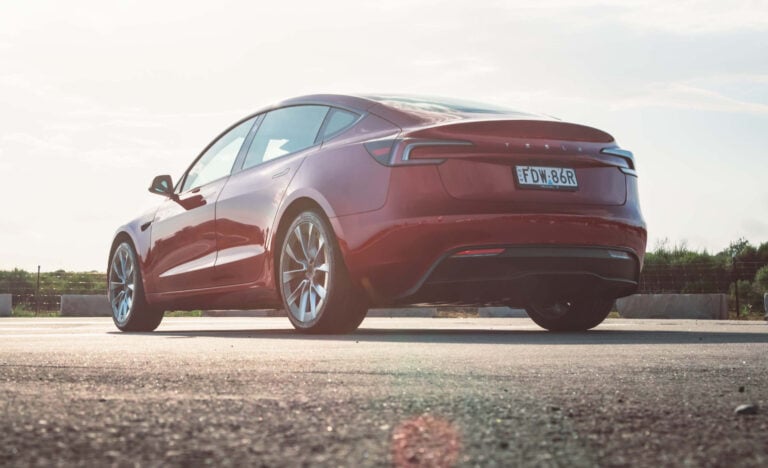 News
NewsTesla quits the FCAI; claims lobby group misled consumers
Explosive letter sees Tesla exit the FCAI and refer it to the competition watchdog. Other EV brands could follow
-
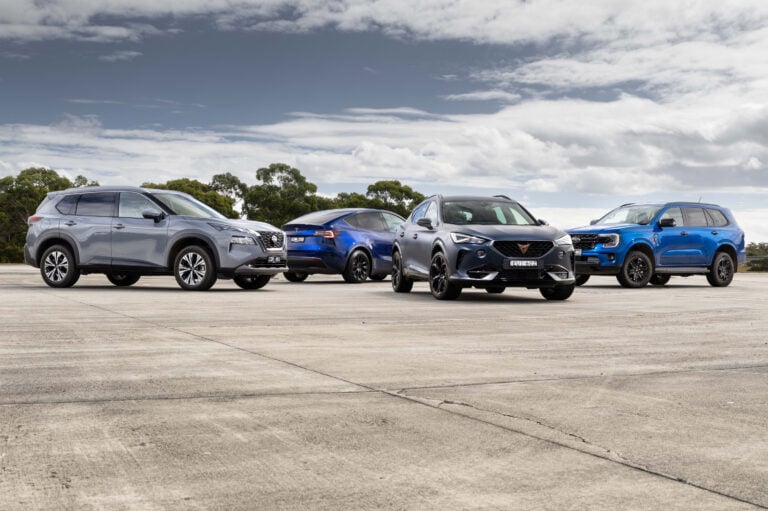 News
NewsWhat do car brands think about Australia’s proposed New Vehicle Efficiency Standard?
Here’s what the major auto brands think about Australia’s proposed fuel-efficiency standards
-
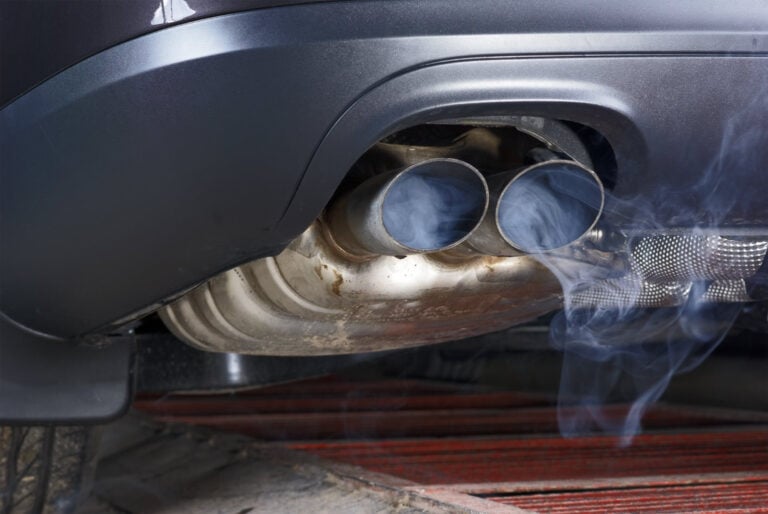 News
NewsUnpacking Australia’s New Vehicle Efficiency Standard: What does it mean for you?
What options do we have for Australia's upcoming fuel efficiency standards?


